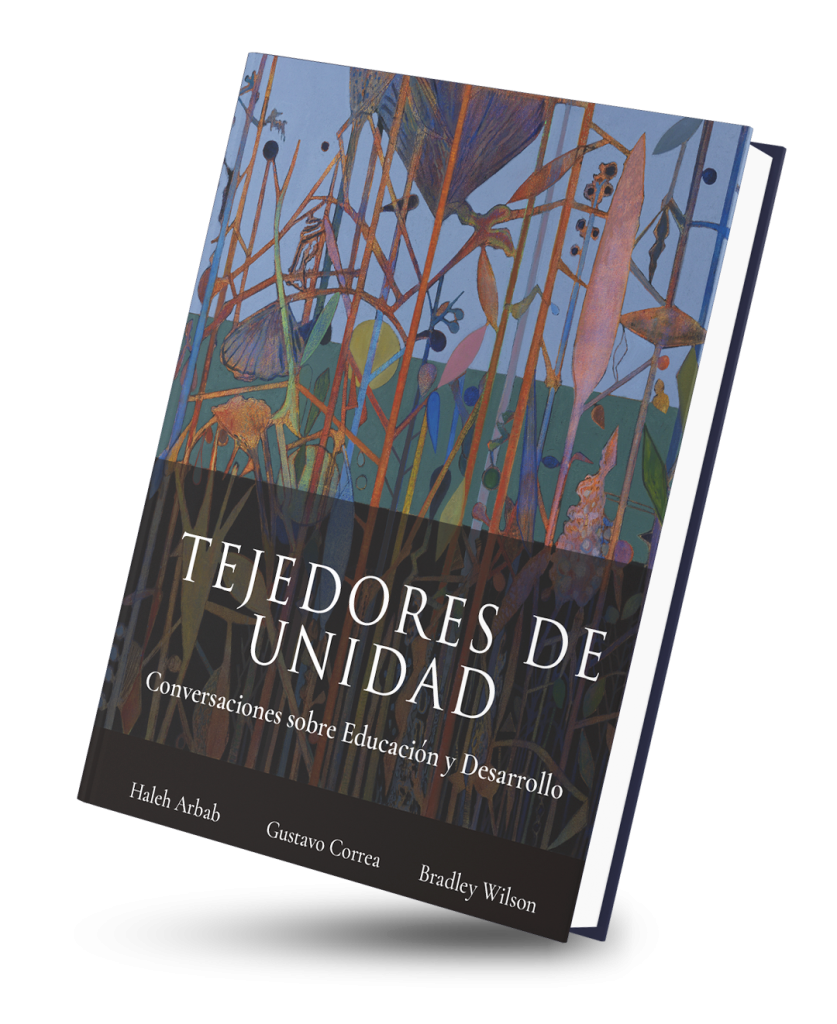Weaving a Fabric of Unity describes the pioneering enterprise that became the Foundation for the Application and Teaching of Science, known as FUNDAEC. The book highlights action and learning from five decades of FUNDAEC’s experience, through stories told by and about individuals engaged in shaping its work. The authors discuss some of the underlying concepts of FUNDAEC’s unique methodological approach, which focuses on the integration of theory and practice and on releasing human potentialities. They take the reader on a journey through FUNDAEC’s creation of one of Latin America’s most innovative rural education and development programs. Additionally, they narrate ways in which FUNDAEC’s focus on raising up individuals and populations dedicated to the promotion of community well-being supported its efforts to scale organically over the last few decades. This approach allowed its programs to reach hundreds of thousands of students across Colombia and to be adopted in over a dozen countries globally to support diverse populations working towards the collective realization of a dignified future.

The book Weaving a Fabric of Unity was published in celebration of FUNDAEC’s 50th anniversary. To broaden the conversation around the experiences and insights gathered over these five decades, a presentation tour was held in several U.S. cities, where audiences engaged with the authors in dialogue around the work.
Looking back, we share here some of the reflections that emerged during those gatherings:
Dr. Haleh Arbab has over four decades of experience as a leader in education for development. Haleh worked for FUNDAEC from 1982 to 2005, including ten years as director of its Centro Universitario de Bienestar Rural (The University Center for Rural Wellbeing), a Colombian university she co-founded in 1988 that offered over 3,000 students undergraduate and graduate degree programs in education for development. From 2005 to 2018, Haleh served as director of the Institute for Studies in Global Prosperity (ISGP), where she participated in efforts to elaborate and promote a Discourse on Science, Religion, and Development in collaboration with international NGOs, government officials, and academics. At ISGP, she also worked on the design, implementation, and evaluation of graduate and undergraduate seminars focused on equipping students on six continents to contribute to constructive social change. She is currently the founding director of the Center for Research in Education for Development (CRED). Her current work focuses on fostering community-based approaches to research and education internationally.
Haleh holds a Doctor of Education from the Center for International Education at the University of Massachusetts and a Master’s degree in Communications from the University of Pennsylvania.
Gustavo Correa began his career as a mathematics professor at the Universidad del Valle in Cali, Colombia. Gustavo was one of the founders of FUNDAEC in 1974 and served as its director from 1988 to 2005. He is the co-author of a number of educational materials produced by FUNDAEC. In 2008 he was elected to the Universal House of Justice, the international governing council of the Bahá’í Faith, which he served until 2018. Since his return to Colombia in 2018, Gustavo has continued as an advisor to FUNDAEC and other development and education organizations. Among current endeavors, he helped mobilize a network of 1,500 people across 800 initiatives to quickly respond to the food insecurity problem triggered by COVID-19 in Colombia. This project, Growing Hope, is one of the key inspirations for this book.
Gustavo holds a Master’s degree in Public Administration from Harvard University’s Kennedy School of Government.
Dr. Bradley Wilson is Associate Professor of Geography and Executive Director of the West Virginia University Center for Resilient Communities. For 20 years Bradley has conducted research in Nicaragua, Colombia, and West Virginia on the response of communities to regional economic crises and the central role of solidarity, mutual aid, grassroots initiatives, and social movements in forging alternative rural development pathways in those regions. In recent years he has embraced his identity as a participatory action researcher–working in teams to accompany community partners as they work for social change. With his students he has established a robust action research program focused on cooperative economics, food justice, food system development, community health, and environmental justice in West Virginia and Appalachia. For the past five years, Bradley has collaborated with FUNDAEC on projects focused on its educational programs and building the capacity of its research teams working on food sovereignty in Norte del Cauca.
Bradley holds a PhD in Geography from Rutgers University.
Meet Rosa Orejuela, one of the very first students of FUNDAEC, whose journey is highlighted in Weaving a Fabric of Unity. Through her studies, Rosa not only fulfilled her dream of receiving an education but also discovered the power of knowledge to uplift her family and serve her community.
Her story illustrates the transformative power of education—how one person’s determination, nurtured by opportunity, can ripple outward to touch countless lives. Rosa’s path is also a vivid reminder of the indispensable role of women in building communities that are stronger, more resilient, and filled with hope.